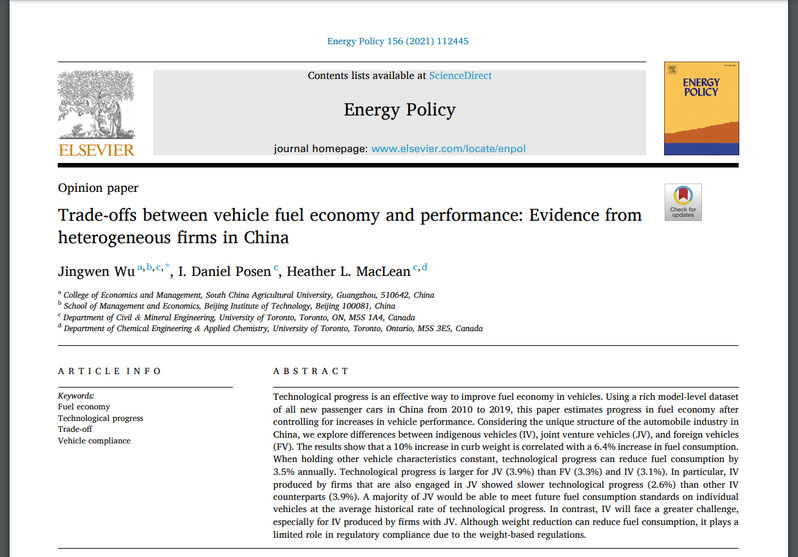作 者: Jingwen Wu* (伍敬文); I. Daniel Posen; Heather L. MacLean
期 刊: 《Energy Policy》
出版时间: 2021 卷: 156 页码:112445
论文地址: https://sci-hub.se/10.1016/j.enpol.2021.112445
摘 要
Technological progress is an effective way to improve fuel economy in vehicles. Using a rich model-level dataset of all new passenger cars in China from 2010 to 2019, this paper estimates progress in fuel economy after controlling for increases in vehicle performance. Considering the unique structure of the automobile industry in China, we explore differences between indigenous vehicles (IV), joint venture vehicles (JV), and foreign vehicles (FV). The results show that a 10% increase in curb weight is correlated with a 6.4% increase in fuel consumption. When holding other vehicle characteristics constant, technological progress can reduce fuel consumption by 3.5% annually. Technological progress is larger for JV (3.9%) than FV (3.3%) and IV (3.1%). In particular, IV produced by firms that are also engaged in JV showed slower technological progress (2.6%) than other IV counterparts (3.9%). A majority of JV would be able to meet future fuel consumption standards on ess. In contrast, IV will face a greater challenge, especially for IV produced by firms with JV. Although weight reduction can reduce fuel consumption, it plays a limited role in regulatory compliance due to the weight-based regulations.
关键词 Fuel economy; Technological progress; Trade-off; Vehicle compliance

责任编辑:董晓玲
审 定:黄 松